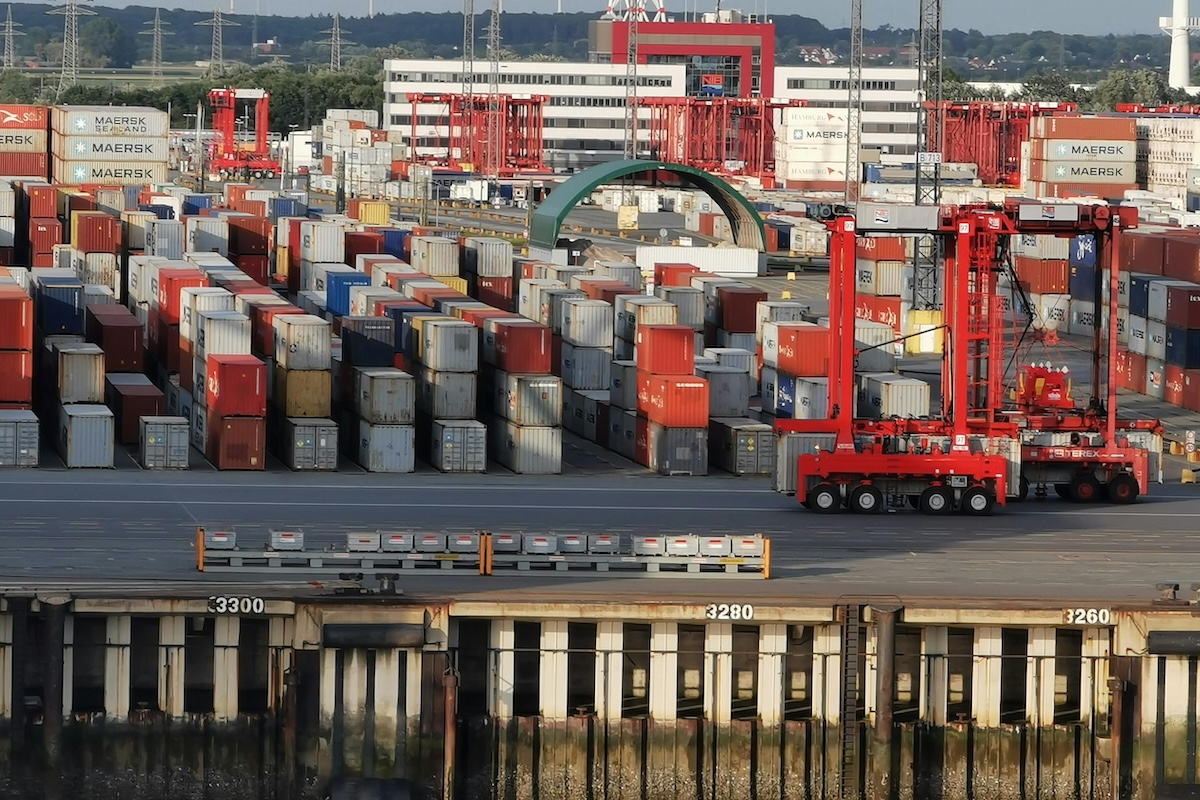Export Compliance Officer: Roles, Requirements, and Responsibilities

Article Summary
An Export Compliance Officer oversees and enforces export control compliance programs to ensure adherence to laws like ITAR, EAR, and OFAC sanctions.
Responsibilities include developing compliance policies, screening transactions, managing export licenses, conducting audits, and ensuring proper documentation.
ECOs need expertise in ITAR, EAR, and OFAC regulations, product classification systems, and may pursue certifications from organizations like SIA or ECTI.
An ECP is a structured framework that ensures adherence to export control laws through policies, training, automated systems, and audits.
Training ensures employees understand export regulations, stay updated on changes, and foster a compliance-first culture.
Non-compliance can lead to fines, loss of export privileges, and reputational damage.
Introduction
In today’s globalized economy, international trade is essential to business growth - but it also comes with complex legal obligations. Companies that export goods, technology, or services must comply with U.S. export control laws, including the International Traffic in Arms Regulations (ITAR), the Export Administration Regulations (EAR), and trade sanctions administered by the Office of Foreign Assets Control (OFAC).
To navigate this demanding landscape, organizations rely on an Export Compliance Officer (ECO) — a professional responsible for overseeing and enforcing export control compliance programs. The ECO ensures that every shipment, technology transfer, and business transaction adheres to applicable laws, protecting both the company and U.S. national security interests.
Key Details About Export Compliance Officers
1. Role and Core Responsibilities
The Export Compliance Officer serves as the company’s central authority on export control matters. Their mission is to B'prevent violations' by building and managing a comprehensive compliance framework.
Core responsibilities include:
- Developing and implementing export compliance policies tailored to the company’s business model.
- Screening customers, suppliers, and transactions against restricted and denied party lists.
- Overseeing classification of products and technologies under the ITAR, EAR, or other applicable regimes.
- Managing export licenses and agreements, ensuring timely submission and adherence to license conditions.
- Conducting internal audits and investigations to identify and correct compliance gaps.
The ECO must ensure that exports and technology transfers are authorized, properly documented, and consistent with both U.S. and foreign regulations.
2. Qualifications and Competencies
Export compliance is a highly specialized area that demands both technical and regulatory expertise. While there are no universally mandated certifications, an effective ECO typically possesses:
- In-depth knowledge of ITAR, EAR, OFAC sanctions, and customs regulations.
- Experience with product classification systems, including ECCNs and USML categories.
- Integrity and independence, as compliance decisions often require saying “no” to business pressures.
Many ECOs also pursue specialized training or professional certifications from organizations such as the Society for International Affairs (SIA), Export Compliance Training Institute (ECTI), or World Trade Center Association to stay current with regulatory changes.
3. Building and Managing a Compliance Program
A major responsibility of the Export Compliance Officer is to design and oversee the company’s Export Compliance Program (ECP) - the structured framework that ensures ongoing adherence to export control laws.
An effective ECP typically includes:
- Written compliance policies and procedures accessible to all employees.
- Comprehensive training programs for personnel involved in export activities.
- Automated screening and recordkeeping systems to document every transaction.
- Regular audits and corrective actions to address any deficiencies.
- Clear escalation procedures for reporting potential violations or red flags.
The ECO not only builds these systems but ensures that compliance is woven into daily operations — from engineering and procurement to sales and shipping.
4. Monitoring, Reporting, and Recordkeeping
The ECO is responsible for monitoring the company’s export activities and maintaining detailed records of all shipments, licenses, and communications with government authorities.
Key obligations include:
- Retaining export documentation for the minimum period required by law (usually five years).
- Submitting required filings such as Electronic Export Information (EEI) through the Automated Export System (AES).
- Reporting violations or suspected breaches to the appropriate agencies, including voluntary self-disclosures to DDTC, BIS, or OFAC.
- Interfacing with government regulators during audits, inquiries, or investigations.
Accurate and complete records not only demonstrate compliance but also provide protection in the event of government review.
5. Training and Companywide Awareness
A successful compliance culture depends on more than just written policies — it requires constant education and awareness across the organization. The ECO plays a leadership role in this area by:
- Conducting annual and role-specific training sessions for staff who handle exports or technical data.
- Updating personnel on regulatory changes and emerging risk areas.
- Promoting a "compliance-first" culture, where employees understand their obligations and feel empowered to raise concerns.
Through proactive engagement and communication, the ECO helps transform compliance from a regulatory burden into a competitive advantage.
Conclusion
The Export Compliance Officer is a critical guardian of both legal integrity and national security. By managing licensing, monitoring transactions, and ensuring continuous education, the ECO helps the company operate confidently within the complex landscape of global trade regulations.
In a world where penalties for export violations can include multimillion-dollar fines and loss of export privileges, having a well-qualified and empowered Export Compliance Officer is not just good practice — it is an operational necessity. A strong compliance leader ensures that the company’s global reach never comes at the expense of U.S. law, reputation, or security.
Key Points
What is the role of an Export Compliance Officer (ECO)?
An Export Compliance Officer is responsible for ensuring that a company complies with U.S. export control laws, such as ITAR, EAR, and OFAC sanctions. They oversee compliance programs, monitor transactions, and protect both the company and national security interests.
What are the core responsibilities of an Export Compliance Officer?
The ECO’s responsibilities include:
- Developing and implementing export compliance policies tailored to the company’s operations.
- Screening customers, suppliers, and transactions against restricted and denied party lists.
- Managing export licenses and agreements, ensuring timely submissions and adherence to conditions.
- Conducting internal audits and investigations to identify and correct compliance gaps.
- Ensuring proper documentation and authorization for exports and technology transfers.
What qualifications and competencies are required for an Export Compliance Officer?
An ECO must have:
- In-depth knowledge of ITAR, EAR, OFAC sanctions, and customs regulations.
- Experience with product classification systems like ECCNs and USML categories.
- Integrity and independence to make compliance decisions under pressure.
Many ECOs also pursue certifications or training from organizations such as the Society for International Affairs (SIA) or the Export Compliance Training Institute (ECTI).
What is an Export Compliance Program (ECP), and why is it important?
An ECP is a structured framework designed to ensure compliance with export control laws. Key components of an effective ECP include:
- Written compliance policies and procedures accessible to all employees.
- Comprehensive training programs for personnel involved in export activities.
- Automated systems for screening and recordkeeping.
- Regular audits and corrective actions to address deficiencies.
- Clear escalation procedures for reporting potential violations.
The ECP integrates compliance into daily operations, reducing risks and ensuring adherence to regulations.
How does the ECO ensure proper monitoring, reporting, and recordkeeping?
The ECO is responsible for:
- Retaining export documentation for the legally required period (usually five years).
- Submitting filings like Electronic Export Information (EEI) through the Automated Export System (AES).
- Reporting violations or suspected breaches to agencies such as DDTC, BIS, or OFAC.
- Interfacing with government regulators during audits or investigations.
Accurate records demonstrate compliance and protect the company during government reviews.
What are the consequences of non-compliance with export control laws?
Non-compliance can result in severe penalties, including multimillion-dollar fines, loss of export privileges, and reputational damage. A strong compliance program and a qualified ECO are essential to mitigate these risks.










